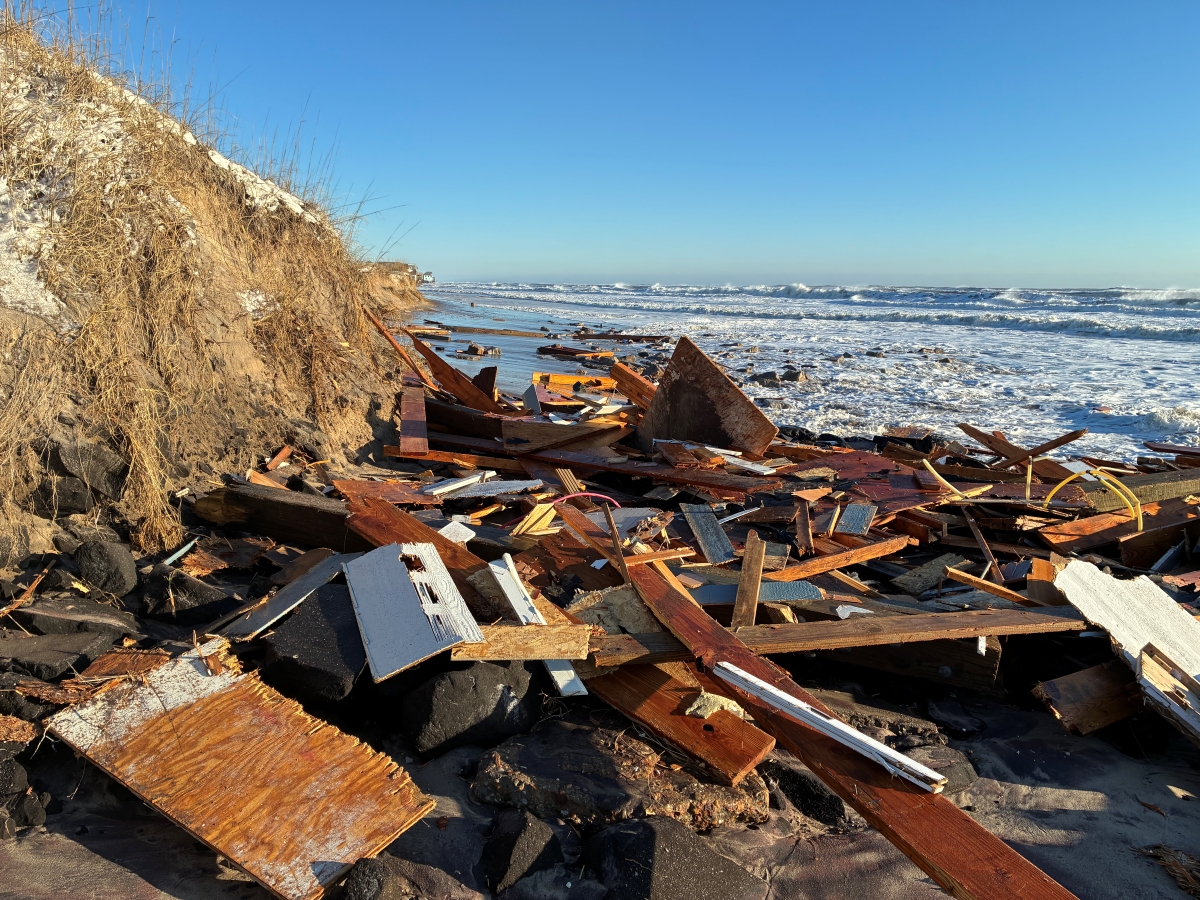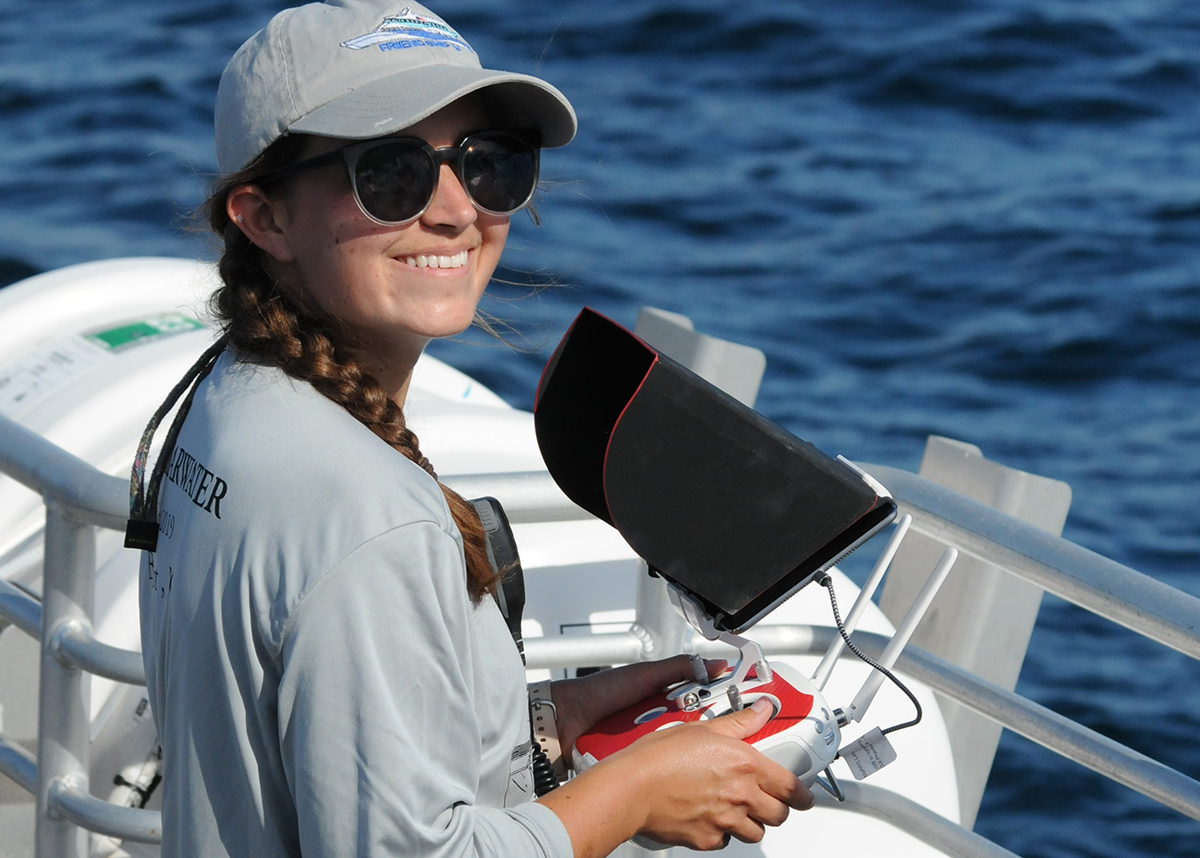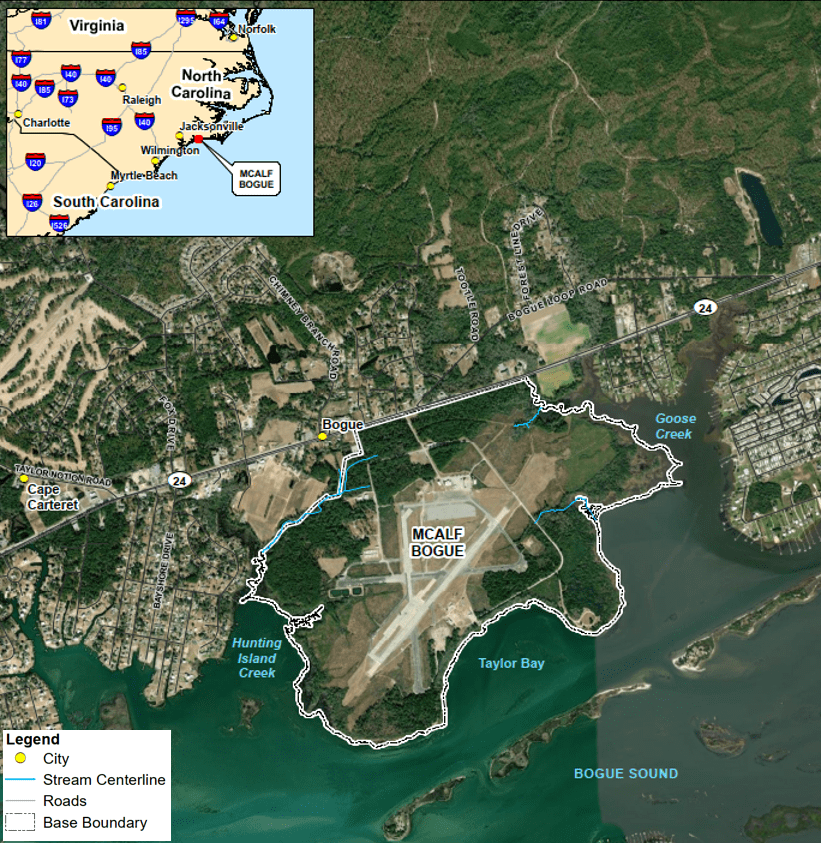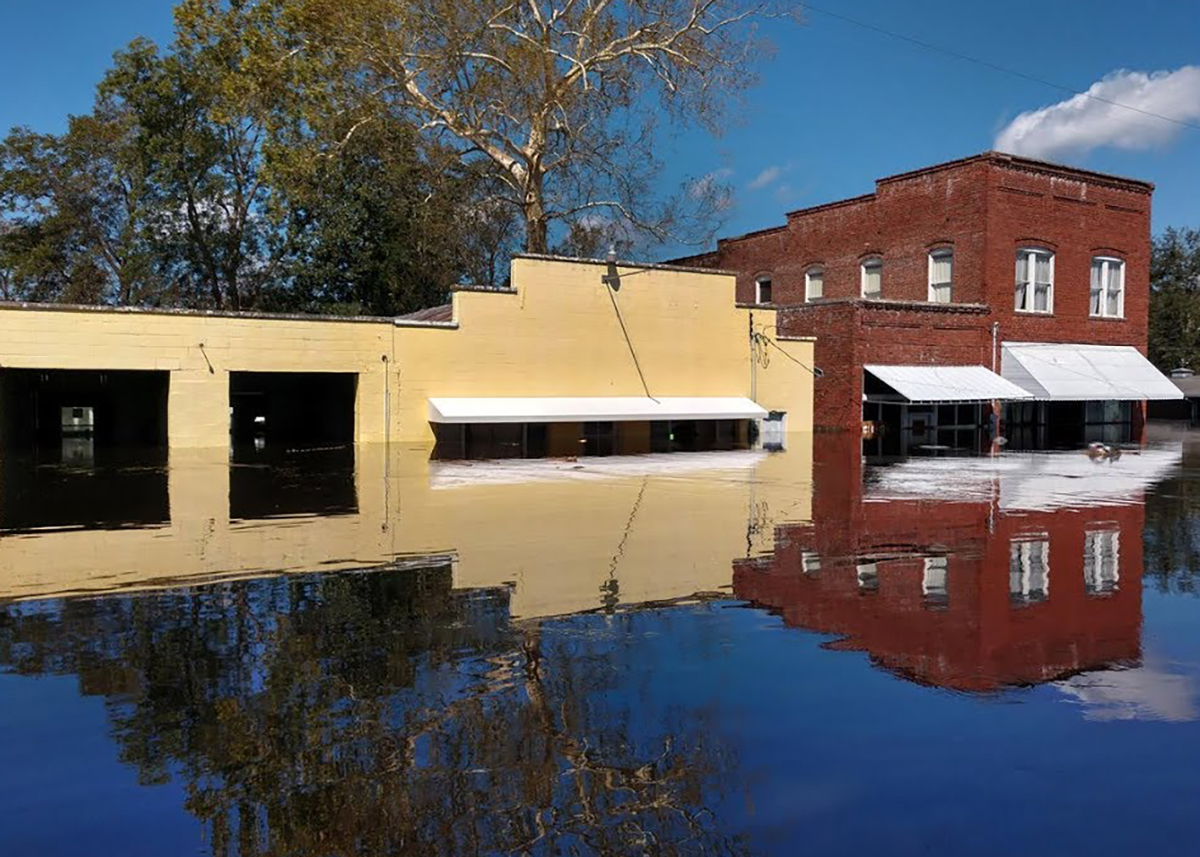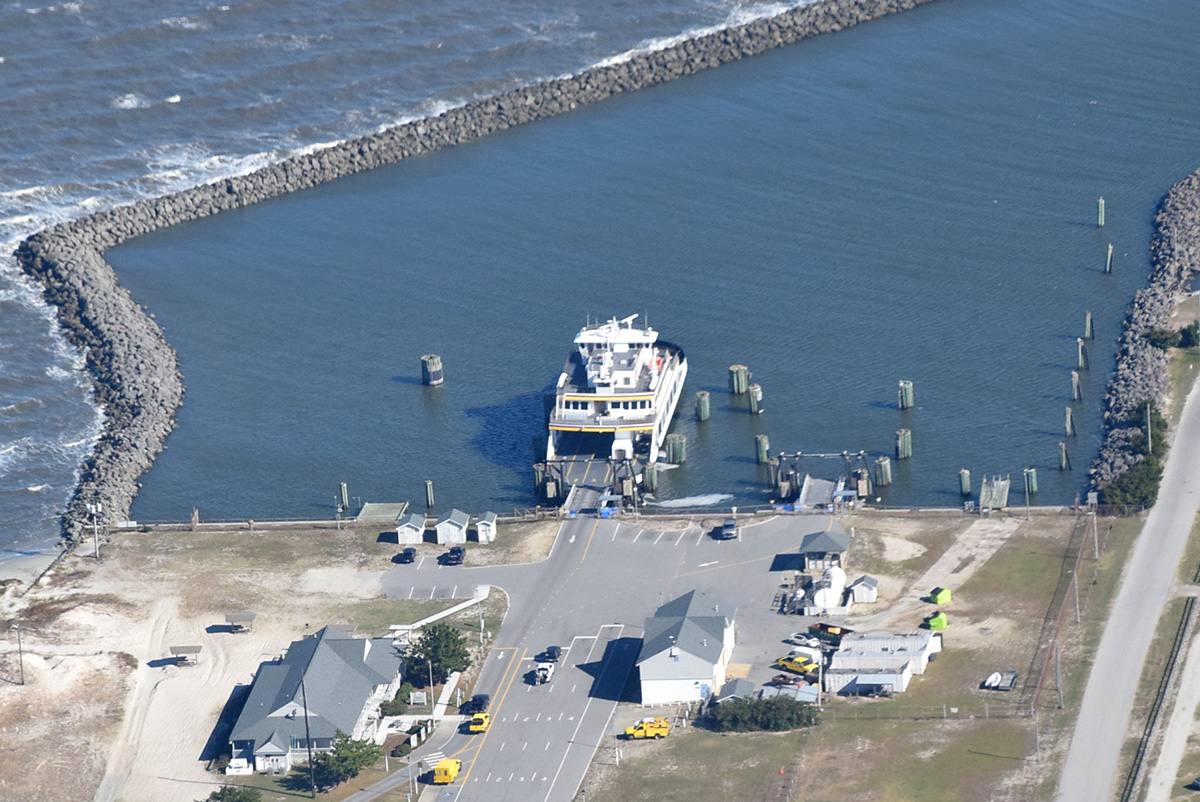
Marvin Nelson routinely takes the state commuter ferry across the Neuse River with whatever scrap metal he’s gathered up to cash in at the recycling center closest to his Arapahoe home.
The 72-year-old hops the Cherry Branch-Minnesott ferry, a roughly 15-minute ride one-way, once or twice a day to get to Foss Recycling in Havelock.
Supporter Spotlight
For Nelson, scrapping is a source of income, wages he says will take a hit if he can no longer take the ferry for free.
That’s a prospect he faces after the North Carolina Senate last week approved its proposed $66 million budget, one that includes tacking on tolls for all North Carolina Department of Transportation ferry routes and raising rates at those where tolls already exist.
“That has got people around here all shook up,” Nelson said.
And it has drawn the immediate rebuke of local government officials representing the areas in which these ferries are operated.
“We here consider (the ferry) incorporated into the taxes that we have already paid every single year,” said Pamlico County Commissioner Ken Heath. “That’s the way it’s been since the early ’70s is that our tax money has gone to support all the highways in North Carolina, including our highway that stretches across the river, which is exactly what the ferry is. It’s our highway. We see that as a shared cost across the state.”
Supporter Spotlight
But some lawmakers, including Republican Sen. Vickie Sawyer of Mooresville, argue that the revenue the additional tolls would generate is needed to bolster state transportation department funds.
“In an era when we are fighting for every dollar we can for all types of transportation, collecting revenue from tourists using our ferries is a logical step,” Sawyer, co-chair of the Senate appropriations committee for transportation, told the Raleigh News & Observer last week.
And while well over half of Ocracoke-Hatteras ferry riders are tourists, locals depend on ferry service to access things like medical specialists and other services not available on Ocracoke, island resident Randal Mathews said.
The Hyde County commissioner was riding the Ocracoke-Hatteras ferry, returning from a dental appointment, when he was reached by telephone last Wednesday.
“It’s typical of what people of Ocracoke have to do,” he said. “We have to travel. I ride (this ferry) all the time. We can’t pay $40 round-trip for every trip to Hatteras.”
In a text he sent Coastal Review the day following the telephone interview, Mathews reiterated that ferry tolls “will create hardship for all residents.”
“I’m afraid the vendor that removes our solid waste will not serve us after a toll is added,” he said. “Any politician who supports tolling to Ocracoke is making a terrible mistake and is certainly not interested in economic development in eastern North Carolina.”
Under the Senate proposal, vehicles less than 20 feet long would be charged $20. The toll for larger vehicles would be $40 and passengers would be charged $1.
NCDOT would charge vehicles that provide commercial goods and services an annual fee of $150, which would cover priority boarding. Commuters would be charged the same $150 annual fee for a commuter boarding pass. “Only one annual pass per vehicle shall be issued per year,” the budget states.
That would apply to all four car ferries that are currently free, including the Cherry Branch-Minnesott and Aurora-Bayview ferries, whose users are largely commuters — workers at Marine Corps Air Station Cherry Point and employees of the Nutrien phosphate mine in Aurora.
“We have one ferry that goes from Pamlico to Craven (counties) and it’s used by a lot of people who work at Cherry Point, which is obviously a major employer of our county and so, without question, we are not in favor of tolls on the ferry,” Craven County Commissioner Chair Denny Bucher said. “Our DOT highways, the people don’t pay to ride on the highways, except for one spot in the Raleigh area, but they don’t pay to drive on highways and I don’t think they should have to pay to cross a river that happens to be between them and their employment.”
Vehicles 20 feet and under would be charged $5 to ride the Cherry Branch-Minnesott ferry. The price would double for vehicles greater than 20 feet.
The toll for the Aurora-Bayview ferry across the Pamlico River would be slightly less, with vehicles 20 feet or less paying $3, and those over 20 feet paying $6. Passenger riders would be charged $1.
Riders of the now-free-of-charge Currituck-Knotts Island ferry across the Currituck Sound would be charged $3 for vehicles 20 feet or shorter and double that for longer vehicles. Passengers would be a $1 toll.
Fees would double for riders of the Ocracoke Express, the passenger-only ferry, to $15 per person, and for riders of the Cedar Island-Ocracoke and Swan Quarter-Ocracoke ferries across the Pamlico Sound to $30 for vehicles 20 feet and under and $60 for those over 20 feet. Passengers would be charged $2.
Those who pay a vehicle toll would not be required to pay separate passenger tolls for occupants of that vehicle.
The Senate also proposes increasing tolls on the ferry that runs between Fort Fisher and Southport across the Cape Fear River to $10 for vehicles 20 or less, $20 for longer vehicles, and $2 for passengers.
History repeating
Heath said that, though he was led to believe the issue of ferry tolls would not be forthcoming this year, he is not surprised.
Tolling all ferry systems has been an on-again, off-again discussion stretching back to 2011. Since then, including the latest round of ferry toll talks in 2023, local outcry has halted further implementation of toll fees.
“Our population is nowhere near that of Goldsboro-west, and those areas can attract industry due to the large population,” Heath said. “We’re very sparse here so you’re penalizing us and what little bit of economic positives come out of the ferry. There’s a slight attraction for people to come ride, but it’s minor. For our area, tolls will kill that. It’s a negative for us all the way around. Everybody is pulling together and digging in to fight this till it’s taken off.”
Rep. Keith Kidwell, the Republican representing District 79, which includes Pamlico, Hyde, Beaufort and Dare counties, said in an email that he will fight ferry tolls.
“I will again work against ferry tolls,” he said. “Unless of course they want to toll all bridges that cross water in NC.”
Rep. John Torbett, a Republican from Gaston County, also spoke in opposition of the proposed tolls.
“Dear Eastern and all NC friends. Once again the Senate Transportation leaders intend to toll all ferries,” he recently posted on X, the social media platform formerly known as Twitter. “This will cost North Carolinians who have to use the ferries to go to school, work, doctor, pretty much anywhere. The revenue/tax/user fee is not enough to cover much of anything, and it is not worth it for North Carolinians. Standard revenue sources are enough to cover cost.”
Sen. Norm Sanderson, R-Pamlico and also a representative of Carteret, Chowan, Dare, Hyde, Pasquotank, Perquimans and Washington counties, co-sponsored the budget bill. He did not respond to a request for comment.
Sen. Bobby Hanig, R-Currituck, voted against the budget. He did not respond to a request for comment.
“An important link’
A 2020 analysis by North Carolina State University’s Institute for Transportation Research and Education found that North Carolina’s ferry system facilitates more than $735 million in gross business sales and generates more than $32 million in tax revenue.
The ferry system also provides to passengers vehicle cost savings of $18.1 million, $13.9 million in travel time benefits, and $8.3 million in safety benefits, according to the report.
“Furthermore, based on responses collected by the research team, the N.C. Ferry system is an important link connecting residents to work, medical, school, shopping and other destinations on the coast. Ultimately, the N.C. Ferry System is a source of job creation, local revenue and tax creation that benefits the coast and the state. It provides economic and quality-of-life benefits for its ferry passengers accessing communities along the state’s extensive coastline.”
Ferry tolls would “take a lot out of my profit,” Nelson said. Driving his old pickup truck on the all-road alternative route would cost him more gas and time.
“Good gracious in the morning, it would take me half-an-hour to go around to Havelock,” he said.



